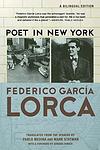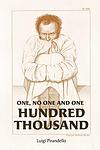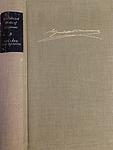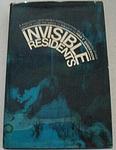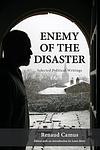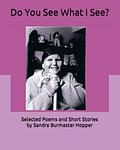The Greatest Italian, Spanish "Modernist" Books of All Time
Click to learn how this list is calculated.
This list represents a comprehensive and trusted collection of the greatest books. Developed through a specialized algorithm, it brings together 300 'best of' book lists to form a definitive guide to the world's most acclaimed books. For those interested in how these books are chosen, additional details can be found on the rankings page.
Genres
Modernist literature is a category of books that emerged in the early 20th century, characterized by a break from traditional literary forms and a focus on individual experience and perception. Modernist writers experimented with language, form, and structure, often using stream-of-consciousness narration and fragmented storytelling to convey the complexity and ambiguity of modern life. Themes of alienation, disillusionment, and the search for meaning are common in modernist literature, which reflects the cultural and social upheavals of the time. Overall, modernist literature is a challenging and thought-provoking genre that continues to influence contemporary literature and culture.
Countries
Date Range
Reading Statistics
Click the button below to see how many of these books you've read!
Download
If you're interested in downloading this list as a CSV file for use in a spreadsheet application, you can easily do so by clicking the button below. Please note that to ensure a manageable file size and faster download, the CSV will include details for only the first 500 books.
Download-
1. Confessions of Zeno by Italo Svevo
"Confessions of Zeno" is a satirical, semi-autobiographical novel that follows the life of Zeno Cosini, a neurotic Italian businessman, as he tries to quit smoking. The book is presented as a diary, written at the suggestion of Zeno's psychoanalyst, and it details Zeno's thoughts on his health, his family, his business ventures, and his infatuation with a beautiful woman. Throughout the story, Zeno's attempts to quit smoking serve as a metaphor for his struggles with his personal weaknesses and his quest for self-understanding.
The 255th Greatest Book of All Time -
2. The Moon and the Bonfires by Cesare Pavese
The story follows a man who, after making a fortune in America, returns to his small hometown in Italy after World War II. He finds the place significantly changed, with many of his old friends either dead or drastically different. As he tries to reconcile his memories with the new reality, he also grapples with his own identity and the impact of the war on his home. The narrative explores themes of change, identity, and the lasting effects of war.
The 740th Greatest Book of All Time -
3. Poet in New York by Federico García Lorca
This book is a collection of poems by a renowned Spanish poet during his stay in New York City in the 1920s. The poems are a commentary on the urban landscape, highlighting the stark contrast between nature and industrialization. The poet's deep sense of alienation and despair in the face of social injustice and consumerism is evident. The collection is considered a significant contribution to the Spanish literature and an important critique of modern society.
The 1360th Greatest Book of All Time -
4. One, No One and One Hundred Thousand by Luigi Pirandello
The book tells the story of a man who has his identity shattered when his wife casually notes that his nose tilts to the right, something he had never noticed before. This seemingly insignificant comment leads him into an obsessive quest to understand how he is perceived by others, and he gradually loses his sense of self as he fragments into a multitude of characters. The protagonist's existential crisis intensifies as he realizes that everyone he meets perceives him differently, leading him to question his own existence and ultimately, his sanity.
The 1611th Greatest Book of All Time -
5. Conversations in Sicily by Elio Vittorini
"Conversations in Sicily" is a semi-autobiographical novel that explores the journey of a man returning to his native Sicily after many years away. The protagonist's journey is both physical and emotional as he reconnects with his past, his culture, and his mother, while also confronting his disillusionment with the political and social realities of the time. The narrative is filled with poetic and philosophical dialogues, providing a deep exploration of Sicilian life, identity, and the human condition.
The 2435th Greatest Book of All Time -
6. Our Lord Don Quixote by Miguel de Unamuno
The book presents a philosophical and introspective analysis of the classic literary character Don Quixote, delving into the existential and moral dimensions of his adventures. The author reflects on the nature of reality, the importance of ideals, and the interplay between sanity and madness, arguing that Quixote's chivalric quests and his refusal to concede to the limitations of his mundane world embody a profound and heroic affirmation of human imagination and spirit. Through this exploration, the work becomes a meditation on the human condition and the enduring power of fiction to inspire and give life meaning.
The 2770th Greatest Book of All Time -
7. Invisible Reality by Juan Ramón Jiménez
"Invisible Reality" is a poetic exploration of the unseen dimensions of life, delving into the profound and often overlooked aspects of existence. The author weaves a tapestry of emotions and thoughts, inviting readers to contemplate the intangible elements that shape our perceptions and experiences. Through a series of lyrical reflections, the work challenges the boundaries between the visible and invisible, encouraging a deeper understanding of the world beyond the physical and the immediate, and fostering a connection with the eternal and the universal.
The 3227th Greatest Book of All Time -
8. Orphic Songs by Dino Campana
"Orphic Songs" is a collection of poetry that delves into the depths of the human psyche, exploring themes of existential despair, intense emotion, and the search for transcendence. The poems are characterized by their passionate and often chaotic style, reflecting the author's own tumultuous life experiences and his fascination with the mystical and the irrational. The work is considered a significant contribution to the early 20th-century avant-garde literary movement, capturing the spirit of its time with its innovative use of language and its bold departure from traditional poetic forms.
The 7152nd Greatest Book of All Time -
9. Naked Masks by Luigi Pirandello
"Naked Masks" is a collection of five plays that delve into the complexities of human identity and the conflict between one's inner self and the roles imposed by society. The plays explore themes of madness, illusion, and existential uncertainty, often through characters who are caught in the tension between appearance and reality. The author uses the metaphor of the mask to represent the personas that individuals adopt in public, while questioning the nature of truth and the possibility of truly understanding oneself or others. The plays challenge audiences to consider the fluidity of identity and the performative aspects of everyday life.
The 7152nd Greatest Book of All Time -
10. Selected Writings by Salvatore Quasimodo
"Selected Writings" is a compilation of works by a Nobel Prize-winning poet, which showcases the breadth and depth of his literary contributions. The collection spans various phases of his career, offering readers a glimpse into his evolution as a writer. Known for his lyrical and evocative style, the author's poetry often reflects on themes of war, human suffering, and the search for meaning in a fragmented world. His work is deeply rooted in the classical tradition, yet it also incorporates modernist elements, illustrating a unique fusion of past and present. This anthology not only highlights the poet's technical mastery and emotional resonance but also his engagement with the cultural and historical upheavals of his time.
The 7152nd Greatest Book of All Time -
11. Selected Poems by Federico García Lorca
This anthology is a curated collection of lyrical works by one of the most significant Spanish poets of the 20th century, known for his passionate and haunting verses that often delve into themes of love, death, and the Spanish landscape. The poems reflect the author's innovative use of symbolism, surrealism, and folklore, as well as his deep connection to Andalusian culture. The poet's exploration of identity, societal norms, and the human condition is conveyed through a rich tapestry of imagery and emotion, showcasing his profound impact on both Spanish literature and the broader literary world.
The 7152nd Greatest Book of All Time -
12. Zeno's Conscience by Italo Svevo
"Zeno's Conscience" is a novel that delves into the complex mind of Zeno Cosini, a neurotic Italian businessman, through his confessional memoirs, which he writes at the behest of his psychiatrist. The narrative humorously and poignantly explores Zeno's struggles with his father's death, his unfulfilled love affairs, his troubled marriage, and his addiction to cigarettes. The book, rich in irony and psychological depth, offers a sharp critique of early 20th-century bourgeois society, revealing the protagonist's introspective and often flawed interpretations of his own life and the world around him.
The 8697th Greatest Book of All Time
Reading Statistics
Click the button below to see how many of these books you've read!
Download
If you're interested in downloading this list as a CSV file for use in a spreadsheet application, you can easily do so by clicking the button below. Please note that to ensure a manageable file size and faster download, the CSV will include details for only the first 500 books.
Download

